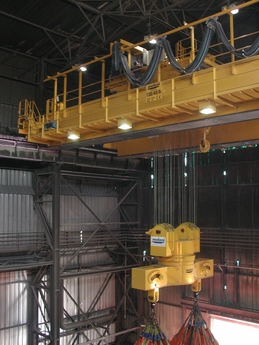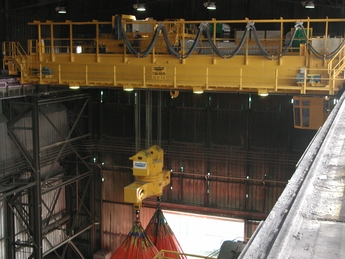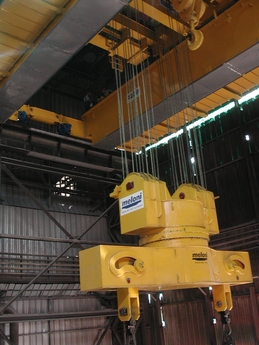The crane “allows the operator to change the centre-to-centre distance between the lamellar hooks so it can hoist a ladle or a bucket,” it said.

It has been installed at the ALPA (Aciéries et Laminoirs de Paris) plant in Gargenville, part of the RIVA Group.
Riva Group consists of several companies operating in the iron and steel production industry, and owns 38 plants throughout the world.

The crane features a full-circle slewing bearing where the lamellar hooks are fixed in order to work as a charging crane for the continous casting tower.

It is provided with two main winches and a hoist (with a capacity, respectively, of 130/40/8t) and fits in with M8 and A8 classes, according to FEM classification. The crane has a speed of 8m/min for the main winches and of 13m/min for the auxiliary hoist.
It is projected to work under heat conditions (50-60 degrees C), so the cab is air conditioned as are the panels where electrical circuits are stored.

The steel industry offers a unique opportunity for internationalisation, says Meloni Tecno-Handling.
True, the overhead crane field is characterised by a growing demand for technological innovation in order to develop suitable solutions for the industrial specialisation that derives from the present market segmentation.

Manufacturers are taking advantage of this.
International orders help to cope with fluctuations that every company, operating on a custom-made basis, experiences sooner or later.
According to Meloni Tecno-Handling, the steel industry is one of the most profitable fields around, “but is also a business where technological knowledge and references are the first trade barrier and where reliability does not allow any compromise.”






